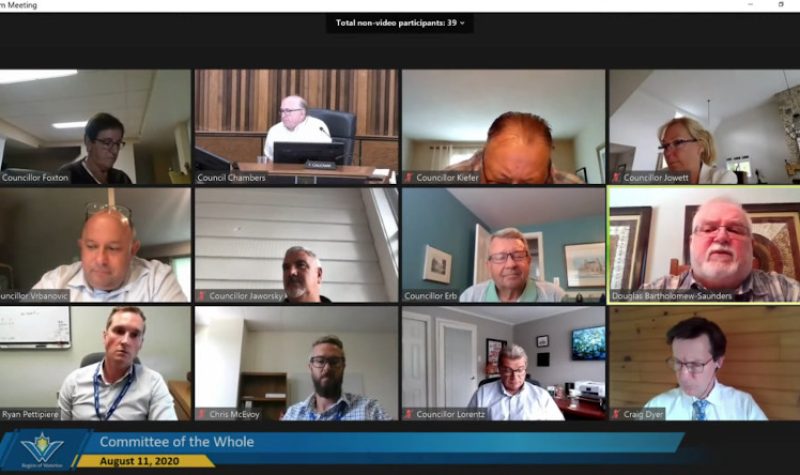Host: Trish Holmes
UPDATE, August 22: The encampment at Victoria and Weber has been dismantled by authorities. The residents did not find a suitable arrangement that could house all of them.
As homelessness rates and housing precarity continue to worsen in Waterloo Region, a regional council meeting took place on August 11 where housing advocates commented on the Region’s new men’s shelter plan and presented some of the homeless and unsheltered communities’ biggest challenges. This episode includes some audio from the presentations to council, followed by an interview with Lesley Crompton, a local housing advocate for a more in-depth analysis of the issues raised at the meeting, including the treatment of folks living in tent encampments and the threats of eviction from local authorities .
At the lengthy regional council meeting, region staff presented the Emergency Shelter Planning Update, which was followed by short presentations by five housing advocates. In the end, council approved two dorm-style shelters with 24-hour access and supports.
Each speaker advocated for specific areas of need in the unsheltered communities and the shelter system. This included
*stressing the need for more transition housing and more permanent affordable housing; decriminalizing homelessness;
*considering a human rights approach to obtaining zero homelessness;
*lowering specific barriers and reforming shelters generally in partnership with a variety of communities, including the homeless themselves; and
*providing basic amenities, such as water and sanitation for encampments and more Lot42-style housing communities.
Each delegate agreed that more spaces need to be made available and more work needs to be done to get people into permanent housing.


